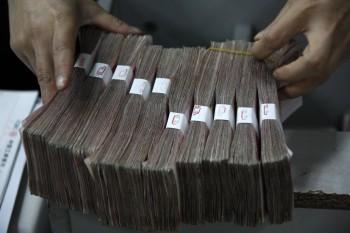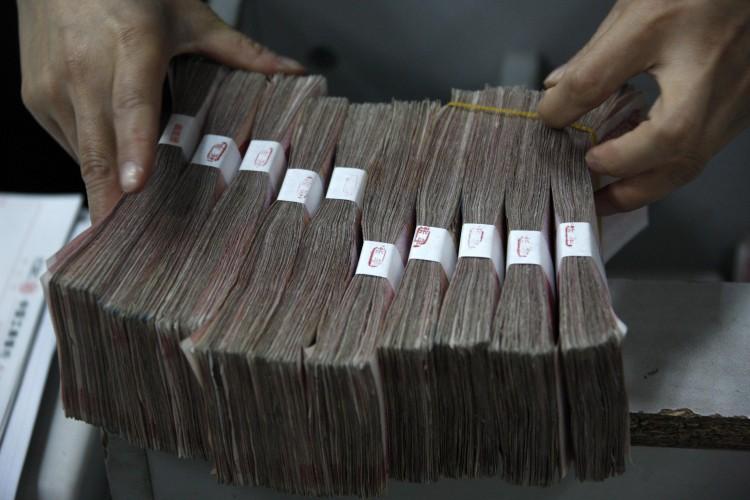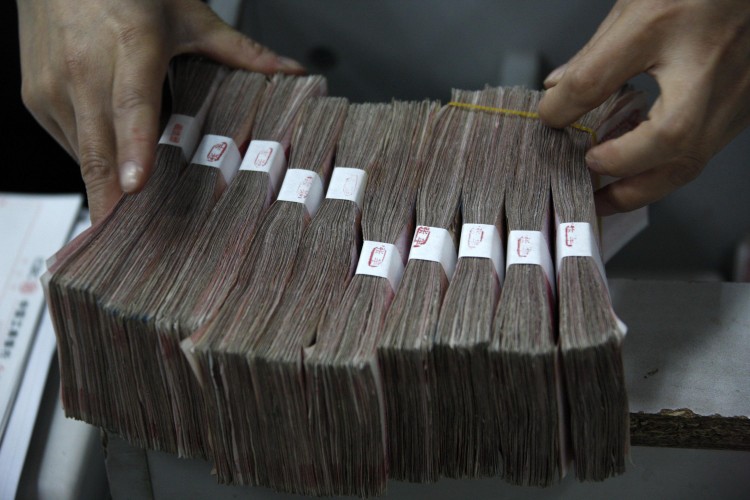China Bank Reserves Raised, Effect on CPI Doubtful
Reserve requirements for Chinese banks are at historic highs, a measure that is not expected to calm the skyrocketing consumer price index (CPI).

Stacks of Chinese Yuan will now be kept in reserve. ChinaFotoPress/Getty Images
|Updated:




